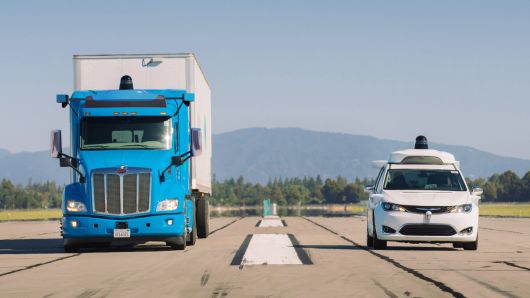
Waymo’s first commercial pilot may be small, but Wall Street has big projections for the company’s financial future.
Alphabet’s self-driving car unit could book $114 billion in revenue in 2030, according to a base-case estimate from investment bank UBS.
In its self-driving taxi test in the suburbs around Phoenix, Waymo will charge a small number of people fares competitive with rides Lyft and Uber. But as Waymo adds more cars and locations, it could also license its maps and an autonomous vehicle operating system to other service or car-markers, or monetize the eyeballs of riders through entertainment or advertising, UBS analyst Eric Sheridan writes in a note to clients on Thursday.
To put that $114 billion into perspective, Intel released a study in June of last year that projected that the self-driving space would generate $800 billion in cumulative revenue by 2035. UBS’s estimate only included Waymo’s revenue from robotaxi-related services, though Sheridan believes it has opportunities in logistics and commercial delivery as well.
Aside from Waymo, a host of other tech and auto companies are racing to launch their own self-driving taxi services, including GM’s Cruise and Uber. While Waymo’s technology is widely seen as the most advanced, as highlighted by its Wednesday launch, there are still a host of regulatory and safety concerns on the table. Waymo’s pilot will still include safety drivers to supervise rides, for example, at least initially.
Overall, UBS pegs Waymo’s total value between $25 and $135 billion, with a base case valuation of $75 billion. Morgan Stanley valued Waymo at $45 billion in August, with the potential to grow to $175 billion.